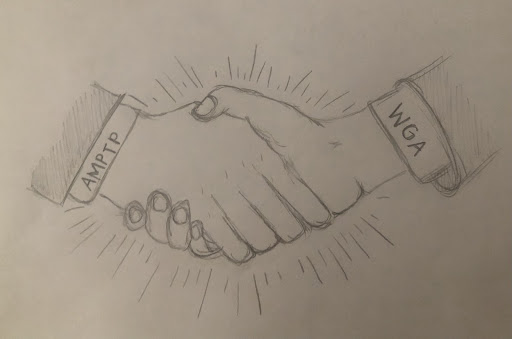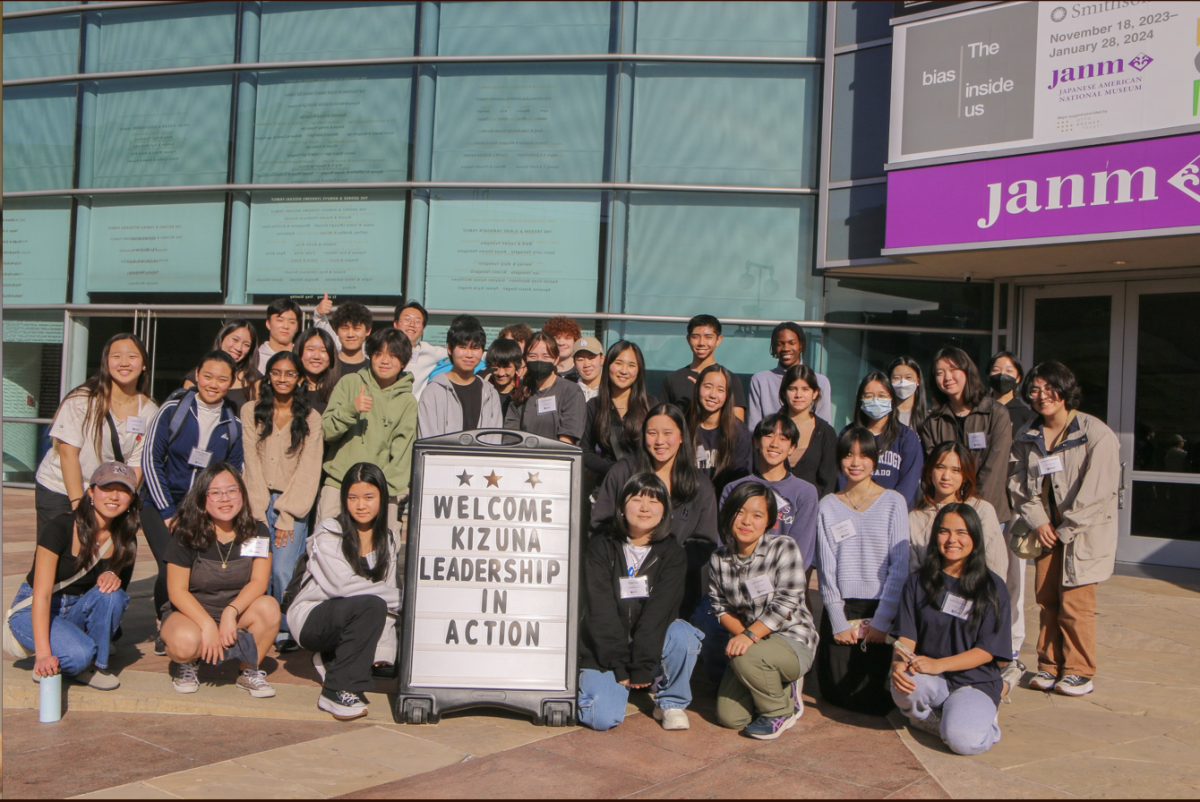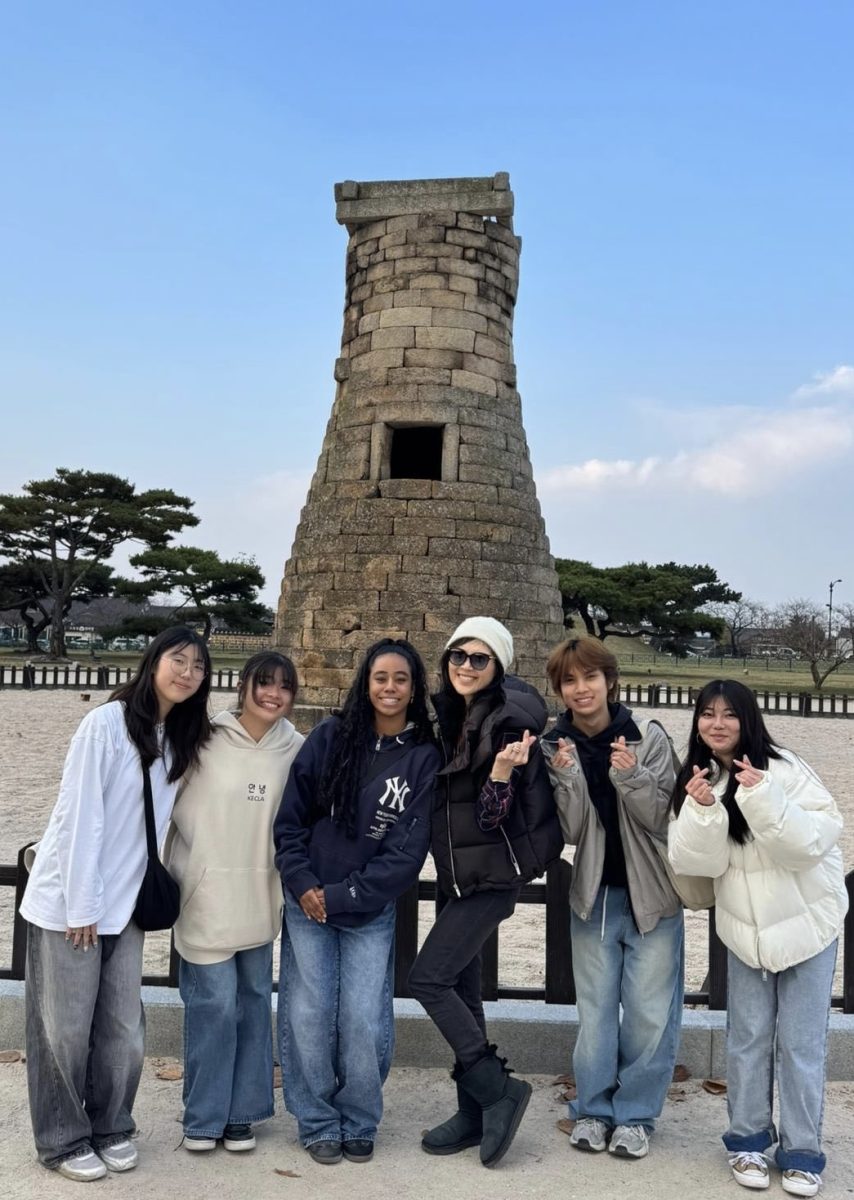Whether you’re an avid follower of recent news or not, you’ve likely heard of the Writers Guild of America (WGA) strike that began May 2, precipitated after negotiations between writers and major Hollywood studios for a new labor contract failed. However, it was announced September 24 that a tentative agreement had been reached. Four days later, WGA leaders approved the agreement, officially ending the strike.
To properly understand what makes this such a momentous occasion for all studio writers, we first have to understand where and why the strike began.
Every three years, the WGA and major Hollywood studios renegotiate their contract. And for several months coming, the possibility of a writers’ strike loomed over everyone’s heads as the expiration date on that contract drew nearer. The frustrations of the guild members stemmed primarily from the growing prominence of streaming, AI replacing their likeness, and the lack of transparency among production studios about how much and how long writers would be getting paid— all contributing to the inevitable argument of what is and isn’t fair. The two parties negotiated for about a month and a half, unable to reach an agreement by contract expiration date May 1. The following day, the WGA announced they would be going on strike.
For a long time, the strike seemed to be going nowhere. TV shows and movies in early stages of production immediately screeched to a halt and were placed on an indefinite hiatus. Days turned into weeks, and weeks turned into months. There were even points where the WGA faced unity issues, with individuals like Drew Barrymore purposefully breaking the strike and trying to talk their way out of it.
However, as of September 28, the strike officially ended and writers were cleared to return to work. Ratification of the official deal by guild members is currently ongoing and will be until October 9.
However, even with voting currently ongoing, the details of the new labor agreement — the Memorandum of Agreement — have been released. Merely a few of the document’s highlights make provisions for the following: increased wage minimums, an increased health fund and pension plan, restrictive language around the use of AI, improved terms for the employment process, and so on for many many pages. The full summary can be found on the WGA 2023 contract website, if you’re curious. But to summarize, the WGA had an excellent negotiation team. Managing to find a compromise for all or very nearly all of their demands, studio writers will have a much-improved job environment and the future of the entertainment industry will change dramatically — there’s no doubt about that.
Not only was the WGA extremely successful, but this is the first time it’s ever been so successful. There have been several writer strikes in the past, however, the 2023 one easily advanced much further than any past ones. Voicing her thoughts on why that may be, Naomi Yoshikawa (12), an ardent writer and follower of the writer strike, remarked: “I think that nowadays, a lot more attention is driven to social injustice. The rise of streaming and TV increased the amount of shows being watched . . . and brought a lot of press and media attention. . . . I think that was the main difference, how many people were in on it and could track it.”
Although we may laugh off social media’s ability to provide information, it’s hard to dismiss how efficient it is. Not everyone reads the paper, but almost everyone has some form of social media. In fact, Ghost Fernandez (12) remarked that they first heard of the strike through social media: “I saw it through TikTok and Instagram posts. I didn’t really follow constantly, I just saw whatever my feed gave me.”
This is also the first time in the U.S. entertainment industry’s history that both the writers and actors have been on strike simultaneously, further increasing the amount of attention drawn to it. Yoshikawa also mused that the writers’ success might influence future or current groups on strike, saying, “I think it kind of paved the way for actors to continue their strike… it really showed that it’s possible to come to these agreements.”
Which is very likely true. The writers’ astounding success in their strike will hopefully further boost the actors’ as well. Accompanying the writers’ return, so will your favorite talk show hosts such as Jimmy Fallon, Steven Colbert, and Jimmy Kimmel. Although the strike is officially over, everyone is still holding their breath until the deal is formally ratified, which will be announced October 9 once members of the WGA finish voting. But after a very long one hundred and forty-eight days, it looks like the writers may finally have their win.









